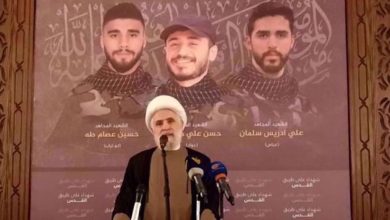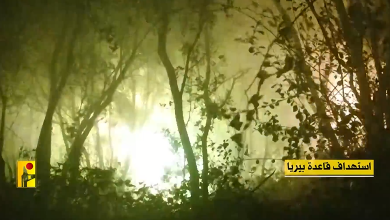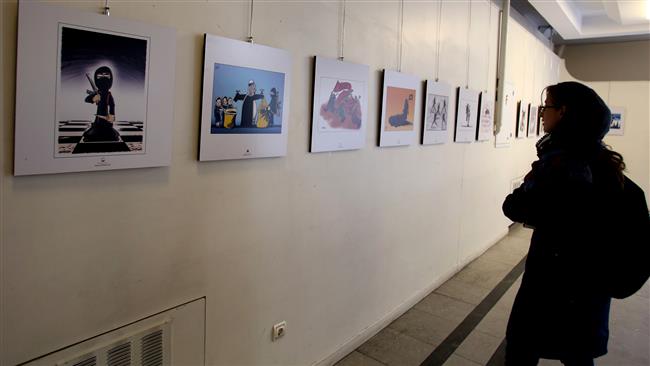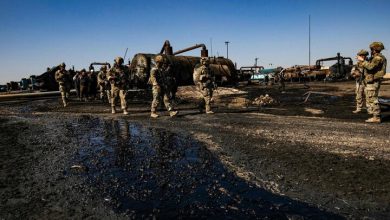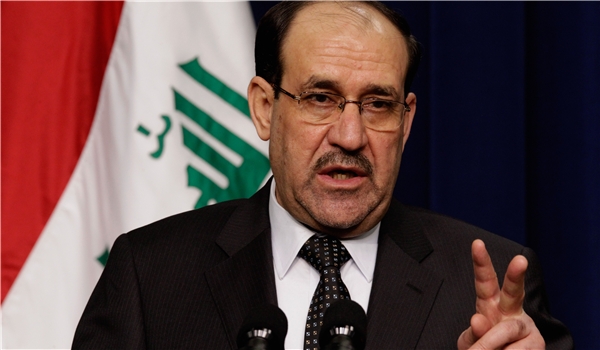Arbaeen 2024: Iranian Pilgrims Participate in Massive March
Tens of thousands of Iranian pilgrims have commenced their pilgrimage on foot to the sacred city of Karbala in Iraq, joining millions in the Arbaeen procession.
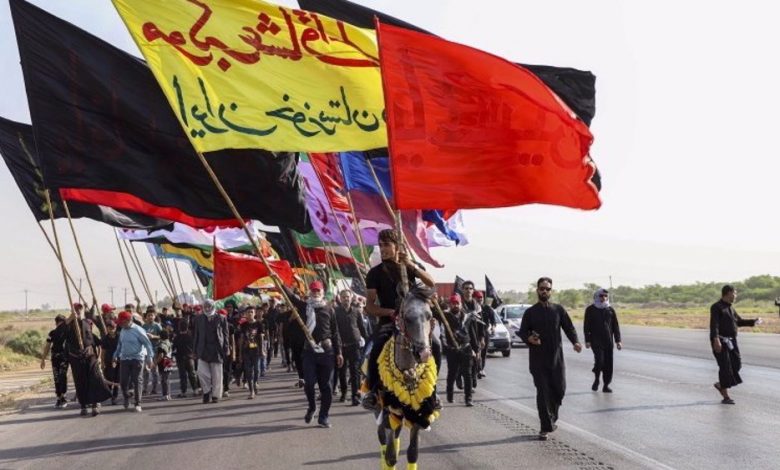
Multiple groups of pilgrims from different provinces have reached Khuzestan Province in southwest Iran, as Iranian authorities have taken a variety of steps to aid the event.
The Arbaeen mourning ceremony ranks among the largest religious congregations globally. This event marks the 40th day following Ashura, which is the anniversary of Imam Hussein’s (AS) martyrdom. Celebrated every year, Arbaeen occurs on the 20th of Safar, the second month of the Islamic lunar calendar. Imam Hussein met his martyrdom during the Battle of Karbala in 680 AD.
Every year, numerous Shias make a pilgrimage to Karbala, where the sacred shrine of Imam Hussein (AS) stands, to engage in mourning rituals. These pilgrims, primarily hailing from Iraq and Iran, frequently travel extensive distances on foot to arrive at the holy city.
Iran’s Interior Minister has affirmed that the nation’s borders are “completely ready” to support the flow of pilgrims for this year’s Arbaeen observance.
On Thursday, while visiting Khuzestan province, Ahmad Vahidi talked about the cooperation with Iraqi officials, saying, “We have established the necessary agreements with our Iraqi counterparts, and progress is on track. Considerable efforts have been made at the Iran-Iraq borders, and we are optimistic that the flow of pilgrims will be seamless.”
Vahidi highlighted the arrangements for foreign nationals participating in the Arbaeen pilgrimage, noting that non-resident foreigners will pass through the Chazzabeh border, whereas resident foreign nationals will use the Shalamcheh border.
The Chazzabeh border lies 110 kilometers northwest of Ahvaz, a city in Iran’s Khuzestan province. Additionally, Shalamcheh is a town within the same province, positioned on the Iraqi border, northwest of Abadan.
Vahidi mentioned that Iraqi officials have revealed plans for 50,000 Pakistani pilgrims to travel through Iran on their way to Iraq.
He additionally noted that over 4 million pilgrims traversed the borders last year, and this year, they expect an increase of 10 to 20 percent in pilgrim numbers.
This year, the Arbaeen ceremony is set to once more attract global attendees. Iraqi Ambassador to Tehran, Naseer Abdul Mohsen Abdullah, mentioned on Tuesday that “pilgrims from 150 nations” will join the procession.
Meanwhile, Iranian officials have put in place steps to assist the Arbaeen pilgrimage.
In a Friday interview with ISNA news agency, Hossein Zafari, the spokesman for Iran’s Crisis Management Organization, outlined the Interior Ministry’s collaborative measures to guarantee the “safety and security of attendees.”
He stressed that beyond ensuring safety, efforts are also being made to deliver “relief and services to the pilgrims.” He urged attendees to follow medical guidance and drive cautiously, both domestically and internationally.
According to an official from Iran’s Arbaeen Headquarters, 3,500 Iranian moukebs are set to accommodate an anticipated five million pilgrims during this year’s Arbaeen procession. Majid Namjoo stated on July 22, as reported by IQNA, that 1,200 of these moukebs will be stationed in Iraq, while the remaining 2,300 will offer services at the borders and along the routes leading there.
Moukebs are temporary shelters or stations that offer crucial services like meals, water, and rest for pilgrims.
In a connected initiative, a health delegation was sent to Iran’s western borders on Thursday after a ceremony featuring Health Minister Bahram Einollahi and other dignitaries.
The delegation’s goal is to ensure the welfare of pilgrims throughout the Arbaeen pilgrimage.
Earlier this week, Reza Fallah, the Director General of the Red Crescent Society in Kerman province, revealed plans to deploy the province’s rescue and medical team for the Arbaeen procession.
He affirmed that “80 medical professionals” would be available to offer services from August 15 to September 15.
Brigadier General Iraj Kakavand, who leads Iran’s Anti-Narcotics Police, voiced his contentment with the robust and authoritative performance of the Anti-Narcotics Police at border crossings. He highlighted that their presence aids in the smooth movement of pilgrims and improves the quality of services during the procession.
Furthermore, Mohammad Saberi, the head of Kerman’s emergency services, reported the dispatch of 15 ambulances, 3 bus ambulances, 1 motor ambulance, and 45 emergency staff to the Mehran and Khosravi border points to support the pilgrimage activities.
Sure, please go ahead and enter the text you would like to have paraphrased.
